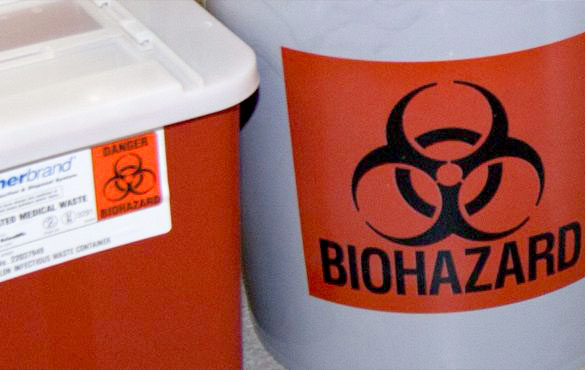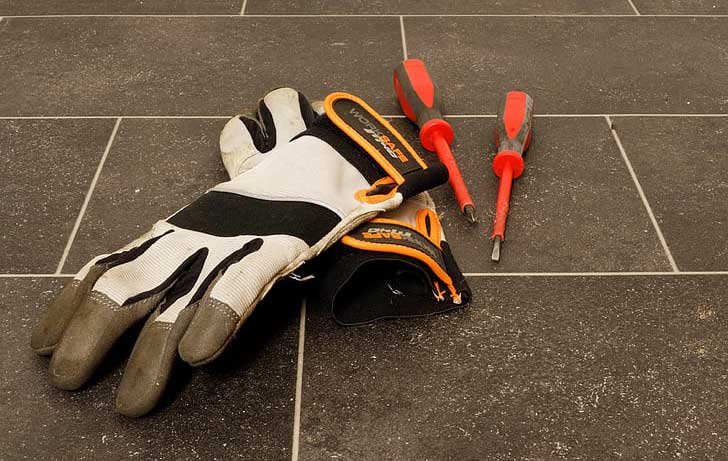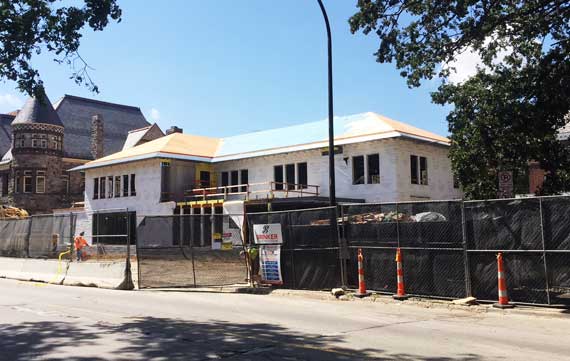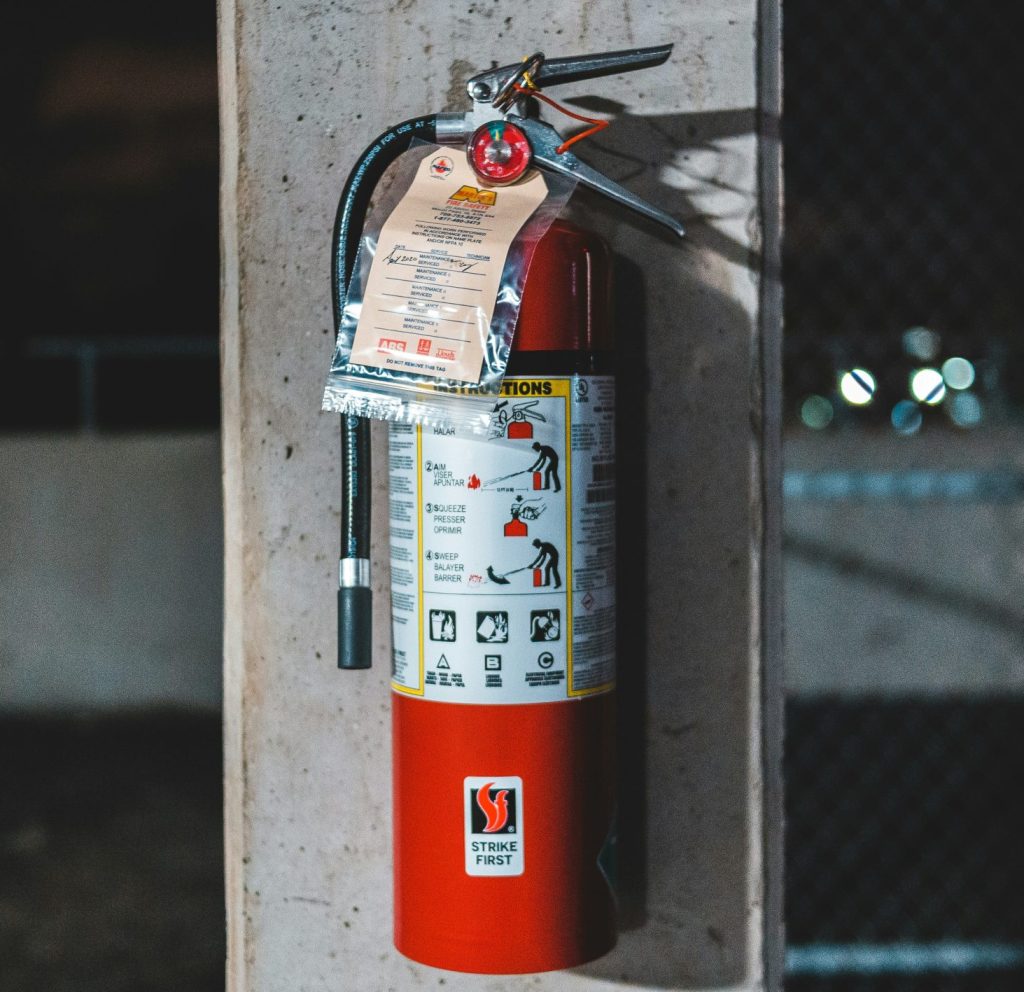Equipment Hazards
Protecting equipment operators and others from injury from equipment used to move or lift loads, or from equipment with motorized parts, begins with requiring equipment operators to enroll in the Medical Surveillance Program and obtain training and a license or permit to operate the following equipment:
- Cranes and rigs
- Permit required equipment
- Motor vehicles
Machining Tools and Equipment
University of Michigan (U-M) staff and contractors who actively work in machine shops, laboratories, and other U-M facilities with machining tools and equipment must follow the University Standard for safety and administrative controls to ensure a safe and productive work environment.

Cranes, hoists, and slings are used in U-M buildings across campus to move heavy loads and equipment. To ensure that this equipment is used properly and maintained in a safe manner it is necessary to implement a maintenance, training, and inspection program.
Standard Operating Procedures, Guidelines, and Manuals
Supplemental Information
EHS
EHS inspects powered cranes and hoists on campus and maintains the inspection records, unless a department elects to develop and manage their own inspection program.
Departments
Departments must:
- Train all crane, hoist, and sling operators on the specific equipment they will be using
- Make any necessary repairs to the powered crane or hoist
- Maintain written documentation of all aspects of the program under their control, including training, inspections, repairs, and maintenance
- If electing to, develop and manage their own powered crane and hoist inspection program
Operators
Operators of overhead or gantry (“MIOSHA Part 18”) cranes must:
- Complete both a written and performance test
- Validate that they meet the necessary physical requirements
- Obtain an operating permit from EHS. Permitting information is located in the EHS Crane, Hoist and Sling Safety Guideline linked above.
NOTE: The operating permit must be renewed every three years. Contractors using an overhead or gantry crane must have a valid permit from the University of Michigan (U-M) in order to operate U-M owned equipment. If not, they must apply for a U-M permit before using an overhead or gantry crane.
Currently, these are the following overhead or gantry cranes at U-M:
- GG Brown (Structural Engineering room)
- Michigan Memorial Phoenix Project building (Pool Floor room)
- Randall Lab (two in Room 1288C), and
- Central Power Plant
No permit is required for employees who only operate cranes other than overhead or gantry cranes, but similar crane training methods should be followed.
The Permit-Required Equipment Program at the U-M refers to owned or leased equipment used for material handling, maintenance, and construction operations, such as
- An aerial work platform
- Mobile equipment
- Powered industrial trucks
- Tractors
NOTE: The Permit-Required Equipment Program does not apply to equipment used for agricultural operations.
The Program ensures that U-M employees and approved contractors are properly trained to use the permitted equipment safely and appropriately. EHS issues permits to the following individuals:
- U-M employees as permitted equipment operators
- Non-U-M employees using U-M permitted equipment
Standard Operating Procedures, Guidelines, and Manuals
- U-M Training Packet
- Permit Renewal
- Permit Renewal (Webform)
- Permit Renewal (pdf)
- F&O Permit Renewal Form
Makerspaces are shops, labs, studios, and other spaces that house sophisticated and potentially hazardous electronic equipment such as 3D printers, CNC milling machines, soldering spaces and laser cutting equipment.
Makerspace Guideline
The Makerspace Guideline ensures that all persons working in your makerspace receive the training required to work safely and in accordance with applicable regulations. Every person working in a makerspace must be familiar with that makerspace’s specific equipment, rules, and procedures.
Machine Shop Safety for Academic Departments Guideline
The Machine Shop Safety for Academic Departments guideline ensures that all persons working in machine shops receive the training required to work safely and in accordance with applicable regulations. Every person working in a machine shop must be familiar with that machine shop’s specific equipment, rules, and procedures.
Machine Shop Checklists
- General Machine Shop Safety Checklist
- Abrasive Chop Saw
- Belt Disc Sander
- Drill Press
- Horizontal Band Saw
- Hydraulic Press
- Jointer
- Metal Lathe
- Panel Saw
- Pedestal Bench Grinder
- Radial Arm Saw
- Scroll Saw
- Table Saw
- Vertical Band Saw
- Vertical Belt Sander
- Vertical Mill
- Vertical Spindle Sander
- Wood Lathe
- Wood Planner
For More Information
Send an email to EHSLabSafety@umich.edu.
The Motor Vehicle Operators Program at the U-M manages personnel licensing and medical requirements for all faculty, staff, and students, including contractors, operating designated U-M vehicles with a gross vehicle weight or combination weight 10,001 pounds or more.
The designated U-M vehicles include passenger buses and vehicles used to transport hazardous materials, regardless of the vehicle weight and all commercial motor vehicles. For more information about operating motor vehicles or the Motor Vehicle Operators Program, contact EHS at (734) 764-1143.





